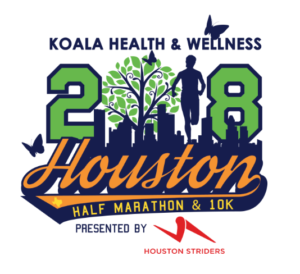We Proudly Support the Houston Half Marathon!
- Posted on: Oct 26 2018
- Leave a response
GO Imaging is proud to co-sponsor the October 28 Houston Half Marathon! We’re so excited for the upcoming event, that we wanted to offer some of our best tips for staying healthy before, during and after any race.
Before Race Day
If you’re reading this the day before the race, the main things you can do for optimal performance on race day are:
- Stay hydrated – even if you’re not going to be racing, staying hydrated is always a good idea. Water flushes toxins, and helps keep your internal organs functioning normally.
- Avoid alcohol completely the day before, and stop drinking caffeine about six to eight hours before bedtime. These two substances can dehydrate your body, and wreak havoc on your sleep. Speaking of sleep…
- Get a full night’s rest. Opt for 7 to 9 hours the night before.
The morning of a race is usually pretty hectic. With that in mind, take care of these things before bed the night before the race:
- Get your race outfit together. If you already have your race number, go ahead and pin it on to make things easier. If not, bring extra safety pins with you to take care of it at registration.
- Have about a 16- 20 oz water bottle ready.
- Don’t forget to have a hat and sunglasses at the ready if you need it, and make sure you have a bottle of sunscreen too.
If you’re reading this a few weeks before a race, there are a few additional things that can help you optimize your race day performance. These include:
-
- Start eating a healthy diet if you aren’t already. Think leafy green veggies, lean proteins, and good carbs. Remember, what we put into our bodies has a big impact on how our internal organs and systems perform.
- Work out three to five times a week, but don’t overdo it. You’ll want to add in plenty of aerobic exercises, and include some light weight lifting. Your body needs to be prepared for the stress of race day.
- Runner’s World reported that “If you can run a 5K now, then you can run a half marathon in eight weeks…But the ideal plan is three to four months long, which gives you a buffer if you get sick, injured, or slammed at work.”
- Runner’s World also recommends a 30 minute run three times a week every week leading up to the race.
- If you have any medical concerns, address them as far ahead of time as possible to ensure your body is physically capable of a race.
- This may mean a physical exam by your doctor, and if necessary there may be additional tests needed such as MRIs or X-rays depending on what your physical exam reveals.
- While this may seem like overkill to some, it’s better to be safe than sorry as internal tears and issues that may not be visible to the naked eye could cause massive trouble in a long race.
- We may be biased, but should your physical exam reveal the need for diagnostic testing, we recommend GO Imaging. Click here to learn about Xray in Houston, and here to learn about MRI in Houston.
- This may mean a physical exam by your doctor, and if necessary there may be additional tests needed such as MRIs or X-rays depending on what your physical exam reveals.
On Race Day
- After you wake up, try to take in about 6 ounces of water, and do that every hour until the race begins. However, stop drinking about 30 minutes prior to racing to avoid cramping.
- Eat a real meal with protein and carbs. You want to keep from feeling sluggish and hungry. Try to finish your meal 30 minutes before the race for your food to settle.
- Also about 30 minutes before the race begins, start warming your body up, stretching, and getting ready to run.
- Race time! Run your race, but keep a steady pace. You’ve got a while to go, so don’t try to go faster than your body can handle.
- A side note that no one likes to talk about: If you feel like you can’t complete the race for any reason, don’t force it. No one wants to be a quitter, but while you’re running, if you feel like you physically can’t complete it, stop. Again, it’s better to be safe than sorry.
- Finish the race, and get ready for recovery. To recover do the following:
- Eat some simple carbs – maybe have a banana and a protein bar with your favorite sports drink
- Keep hydrating the day of, and several days after
- Soak your legs in a cool bath for about 15 minutes – this will help you reduce inflammation
- Massage sore muscles, and try to maintain a good sleep cycle as our bodies do a lot of recovery work while sleeping.
- You may also want to stick to walking instead of running for your exercise routine in the first week or two after a race. About two weeks later you can start jogging, and then add running back into the mix after about three to four weeks.
If you found this article helpful, please do us a favor and share it. We look forward to seeing all of you at the Houston Half Marathon on October 28!


